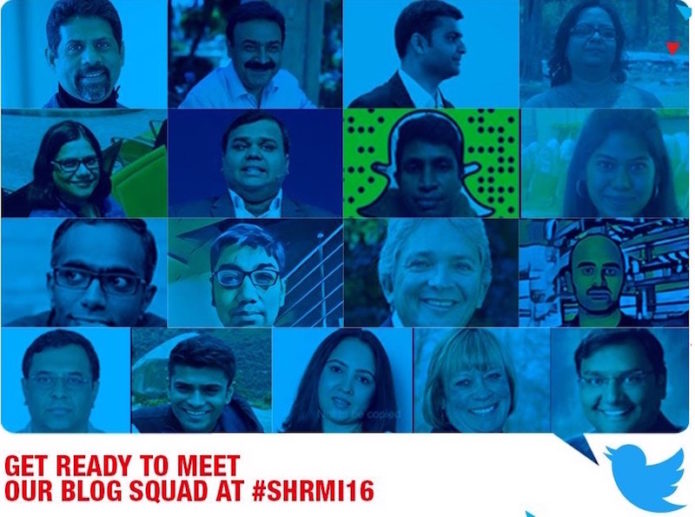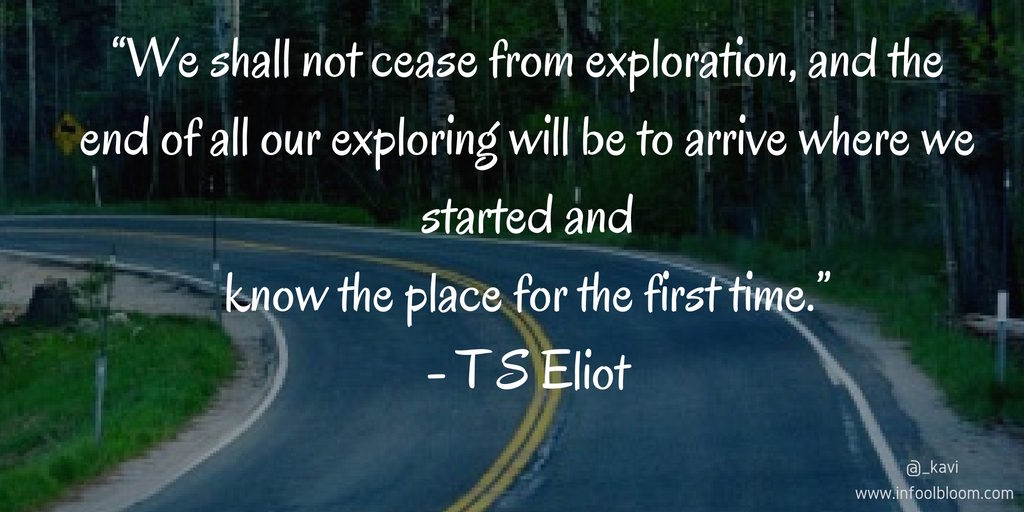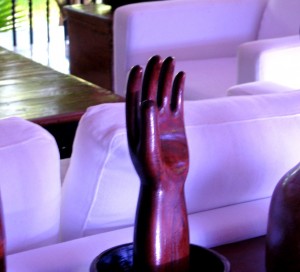The printed out boarding passes to Delhi flutter from the corner of the table. What is the point, they seem to ask. They seem to tease me to think. You see, I will be at SHRM India‘s Annual Conference ( #SHRMI16) on 29th and 30th September in Delhi. While I will be tweeting, talking and crossing other T’s, the boarding passes seem to ask a deeper question : “Another conference?”
Having attended innumerable conferences, I look at the Boarding Passes with a smile.
Of course, there will be good old friends and stories to catch up. Of course, there will be interesting topics, the hashtag will trend and the content will be awesome. If you aren’t going to be there in person, the mosaic above is the list of folks that will be curating stuff for you. The hashtag is #SHRMI16, if you are into following the conversation online.
Even as I write this, I am reminded of a good read that classified conference participants in four different buckets. ( I wish I had known the authors to give them credit ).
Here they are.
1. The Vacationers : These are the folks that utilise the conference for a well-deserved break. They are lost in their thoughts and are least interested in whats happening in the conference. Except of course, the good food, the grand ambience. ‘A paid vacation’, as someone once told me.
2. The Prisoners : You know these people. They are the least interested in the conference. They are there because they haven’t had a choice. They are, to put in another way, ‘sentenced to attend the conference by the organisation’. Sure they are there, taking notes and talking. But given a choice, they would much rather be someplace else.
3. The Experts : You cannot miss these folks. They pontificate on every topic. They have been there, done that & that too. ‘Even if you don’t have a problem, well, this is my solution for it’. They will drop names, spew jargon and sneak in an attempt to steal credit for the Sun showing up in the East. You get the drift, don’t you?
4. The Explorers : These are the folks who are keen to figure things out. ‘ I know a few aspects about whats getting discussed here. There is a whole heap that I don’t know. From the whole lot that is getting said here, let me make sense of what will work for me and what I will let go of consciously‘. Thats the kind of disposition an ‘explorer’ brings to an event.
I have been a sundry vacationer, a dull prisoner, a bombastic expert and a curious explorer in different conferences. These perhaps are frequencies that we tune into, depending on the content of the conference and what our context and disposition is at that point in time.
The truth remains that the opportunity to be a true explorer is ever present to each one of us, at every conference. The choices are ours to make.
The SHRM India conference seems to pack a punch with an array of eclectic topics and speakers. With an exploratory mindset, we ( you and me) can take our takeaways to a new height altogether.That brings me to another question. So what is exploration all about? How does one do that in a conference? Exploration is as personal as it can get. Here are a few things that I try and keep in mind. Stuff that I have learnt from many humble leaders and learners.
Exploration is as personal as it can get. Here are a few things that I try and keep in mind. Stuff that I have learnt from many humble leaders and learners from conferences around the world.
a. Listen. Listen. Listen : Listen to what comes from the stage and the responses it triggers. What is twitter abuzz with? What are the reactions to the content during the coffee break. For me, the responses that the content from the stage triggers, offers a far more compelling picture than the content by itself. ( Twitter, Facebook and other social streams will help you listen in). They give you a far more holistic picture that has rich context. So, dive into both conversations. They are precious.
b. Explore the extremes : To suspend judgement, disbelief and staying alert to seek something of value, is important. Extreme views bring awareness of what lies at the far end. To seek these extremes and entertaining them without necessarily accepting them, lends power to exploration.
c. Ask your questions: Share your thoughts : Finding a way to share your thoughts and asking your questions gives you clarity. Sometimes we may not be comfortable asking the question in public. Find your nooks. Your friends groups. Your online community. Or even those WhatsApp groups. Whatever works for you. ( I would recommend twitter with the hashtag : #SHRMI2016, of course! ).
By doing that you are not only helping a larger understanding of the topic permeate, you are helping the community get stronger. That is a responsibility we carry.
What about success measure? How would you precisely know if attending a conference was worth your while? What goes on between our ears, for all the advancements in science doesn’t lend itself well for precision. Or so I think. So, precision is out.
I remember Lakshmi Pratury giving a formula in an INK Conference that has stayed with me ever since. She said something to the effect of “If you walk out of the conference with ‘one moment, one memory, one friend‘ the conference is a success”. Going by all the people that are going to be there and the interest that the conference is already generating, I am sure I will be many times more successful over the next couple of days.
One more thing. For a true blue explorer, a conference does not end when it ends. In fact, it is when the event ends, that the explorer’s journey begins.






